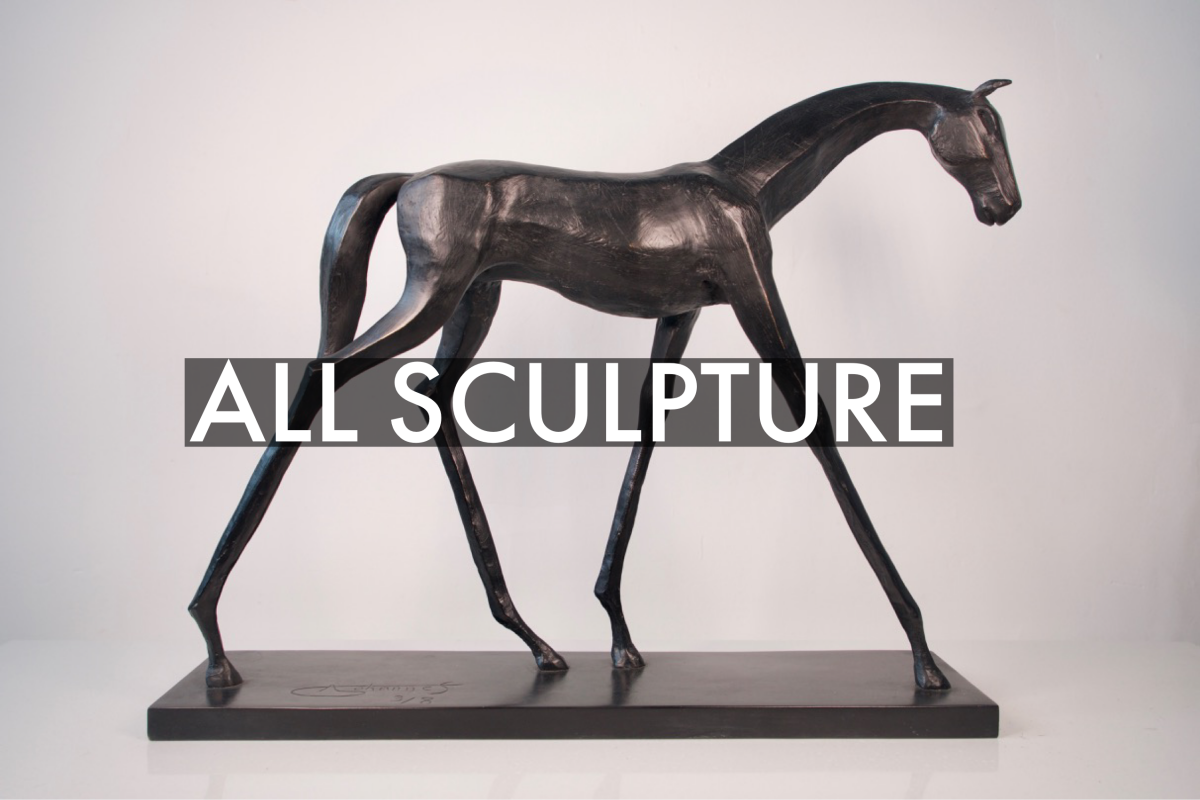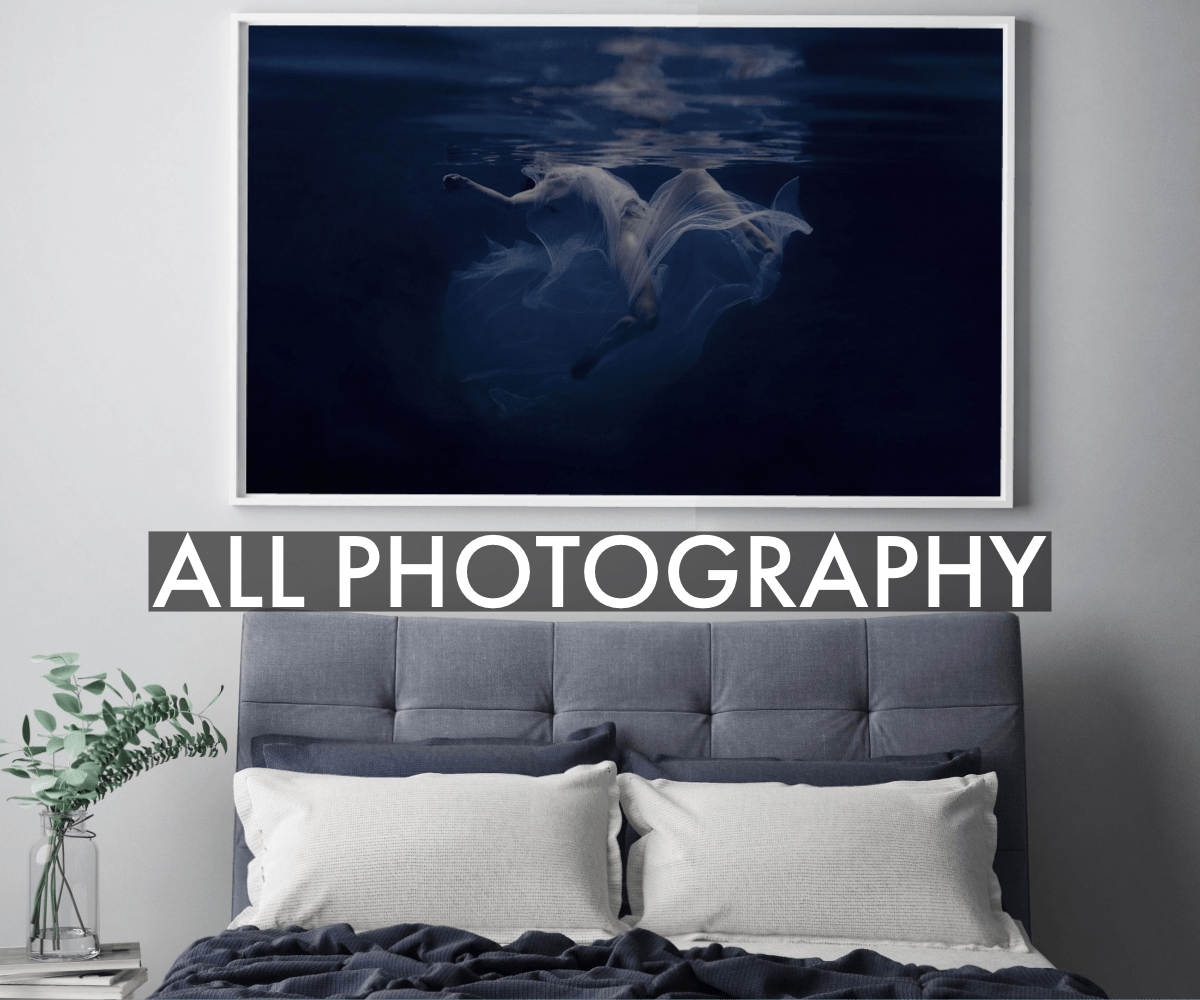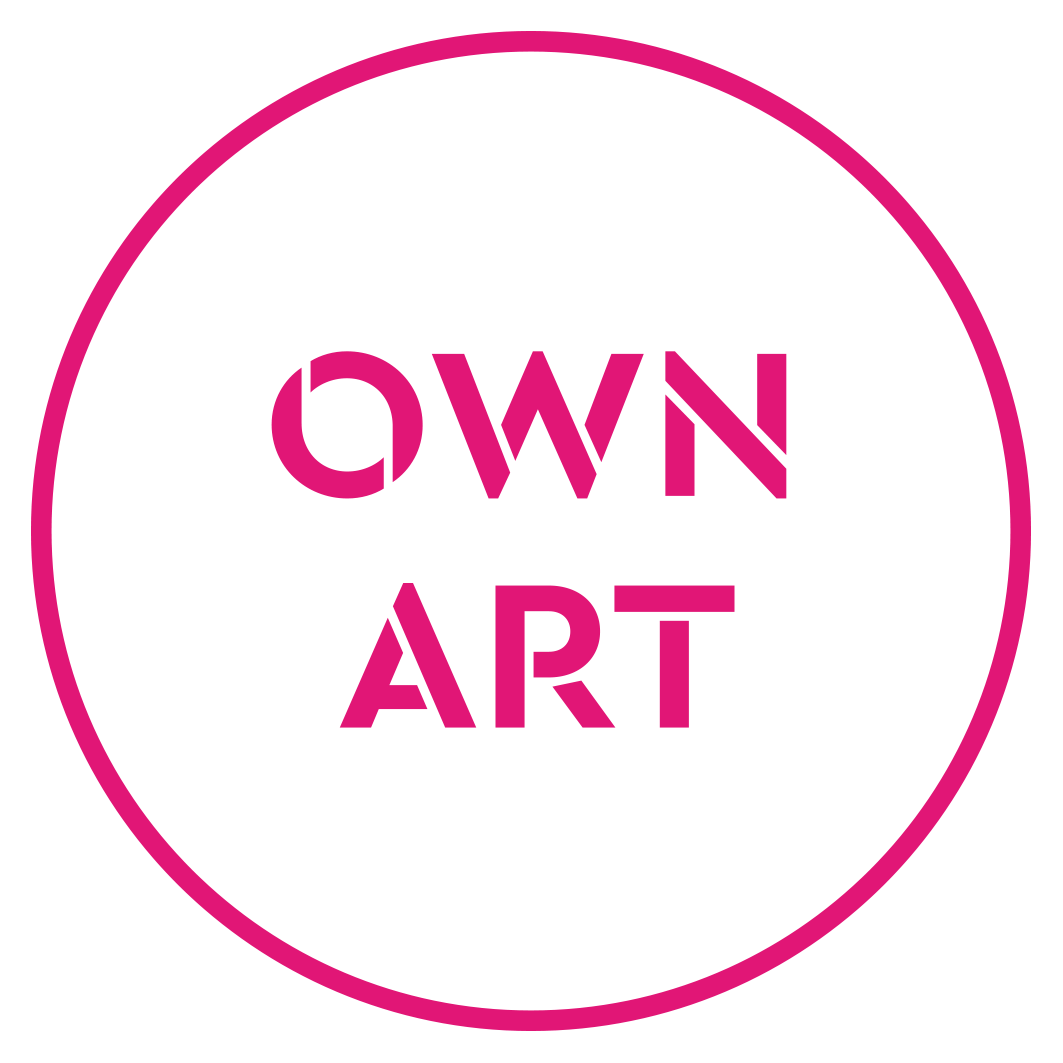Meet the artists that have taken over our Instagram every Thursday in the past month! Showcasing exclusive interviews with Diana Baur, Ewa Podles, Louise Morgan, and Thomas Fowler.
DIANA BAUR
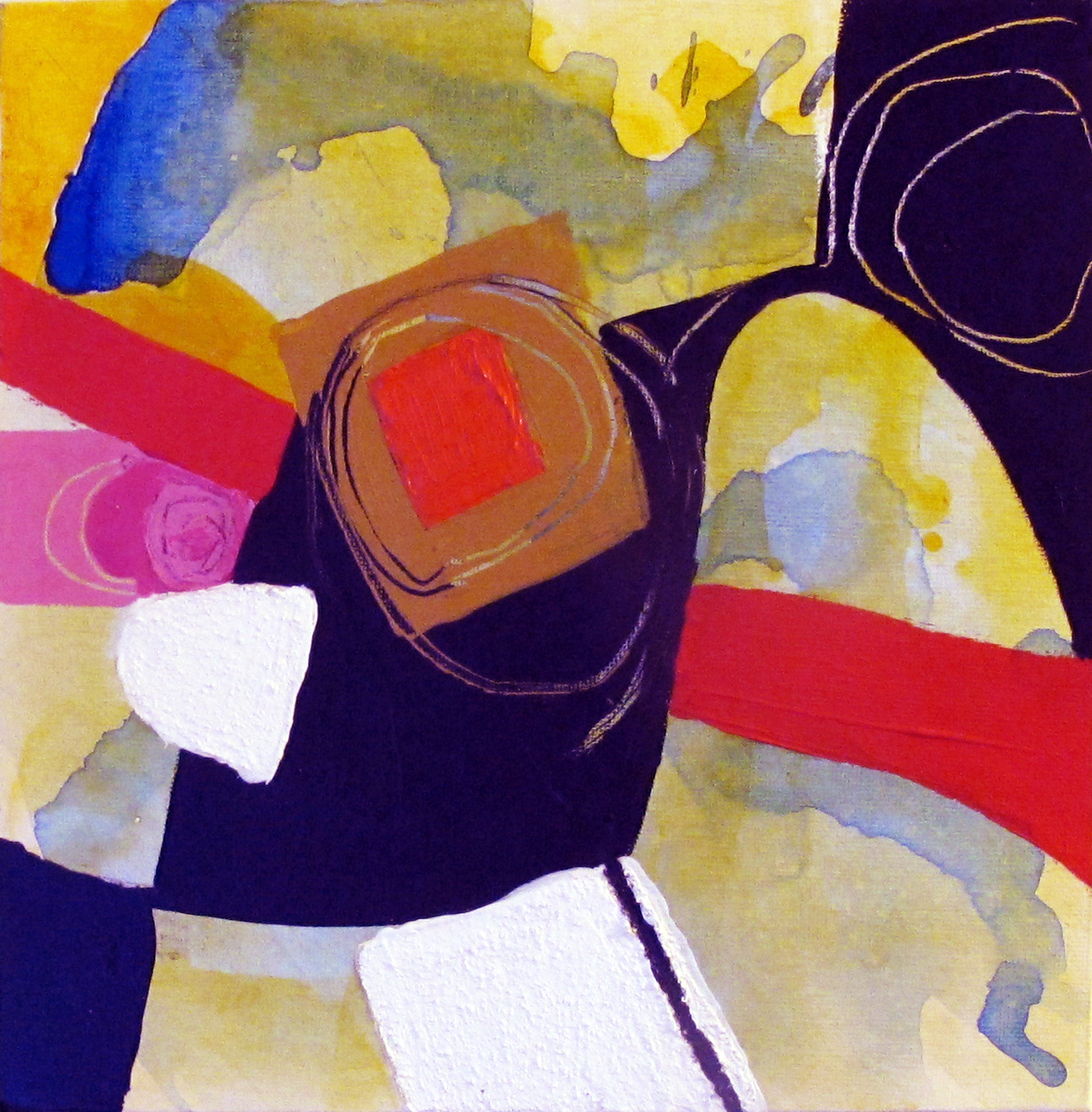
1) Walk me through a typical day in the studio for you?
DB: Very few of my days could be called typical! But a good productive day is driven by my art thinking, which is a constant backdrop, and ideally starts early, before the practicalities of the day kick in. Even 20 minutes first thing gets the juices flowing and the day off to a good start. After that it will be a question of visiting the studio many times during the day for short and sometimes longer periods, depending upon the stages of the main painting I am working on. Leaving a works iin progress at a critical time is essential to rest the eye and return to it with a fresh eye, I find.
2) What is something viewers might not know about your work?
DB: I feel like an instrument through which the works arrive- there is minimal planning as the process is not, ideally, self-directed. It’s about tapping into the emotional side of the subconscious. If it works it is a journey of trusting one's inclinations, colour sense, experience and most importantly risk-taking, that one needs to allow to happen.
3) What is the most challenging part of your process as an artist and what is most rewarding?
DB: These two questions can be two sides of the same coin! I often re-paint over an existing, sometimes much older painting, which, if the original works well, is the ultimate in risk taking! If it included collage it presents a wonderful opportunity to tear some of that off half way through to see what will happen to the new emerging painting. Destruction is a necessary half of creation. A good example is my most recent painting “Madonna of the Cwtch” (Cwtch meaning hug in Welsh) which worked really well after a bit of destruction!
4) Is there any advice you have for artists/creators during this difficult time?
DB: Don’t expect too much of yourself. There is a lot eating into us all at the moment, financial and other worries. Go with the flow. If you don’t feel creative, let it be. Uncreative plateaus are as essential as a good night’s sleep. Look at them as the winter hibernation that leads to a Springtime of creativity. Don’t force yourself. Creativity is a right-brained activity! Just play and have patience!
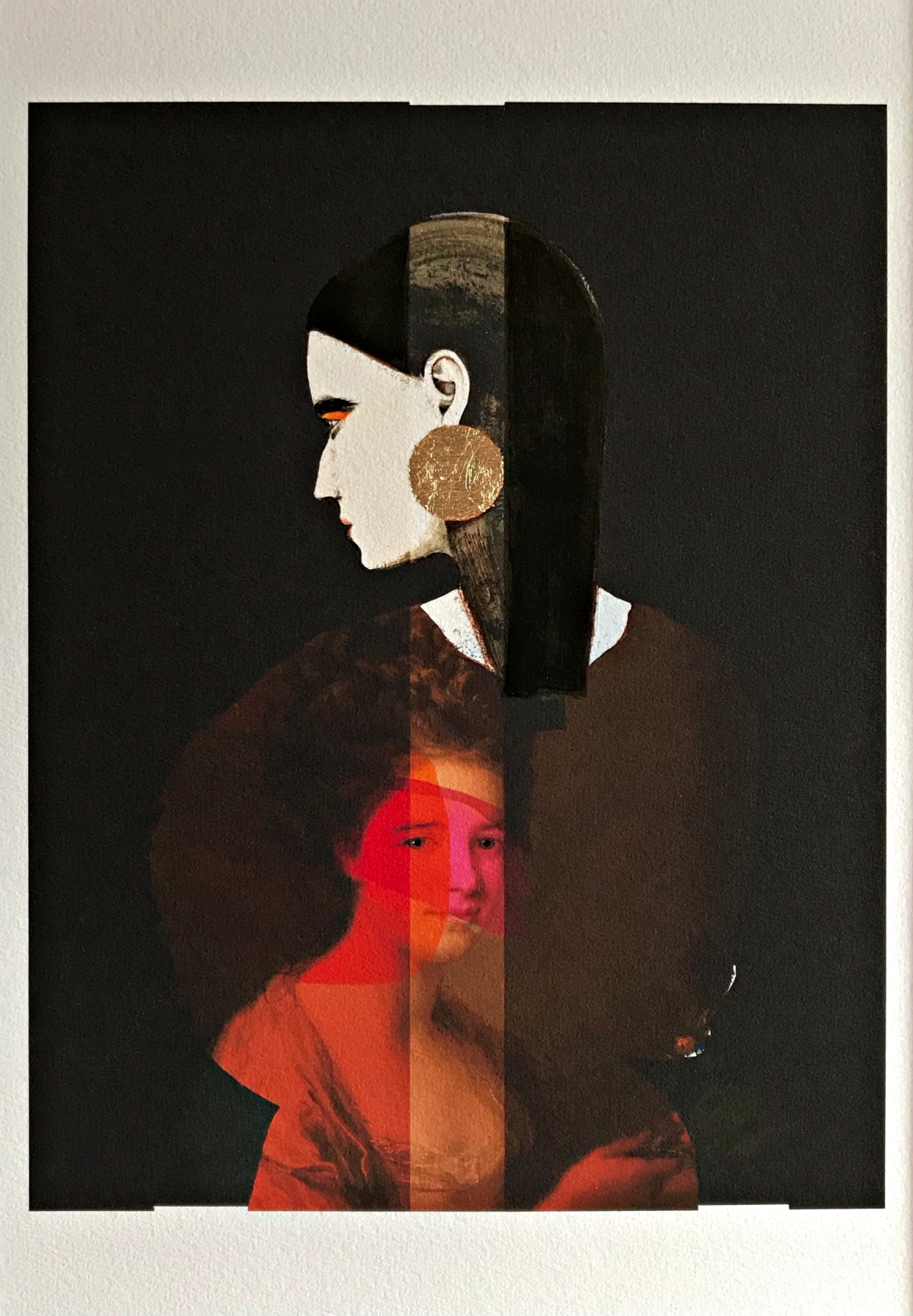
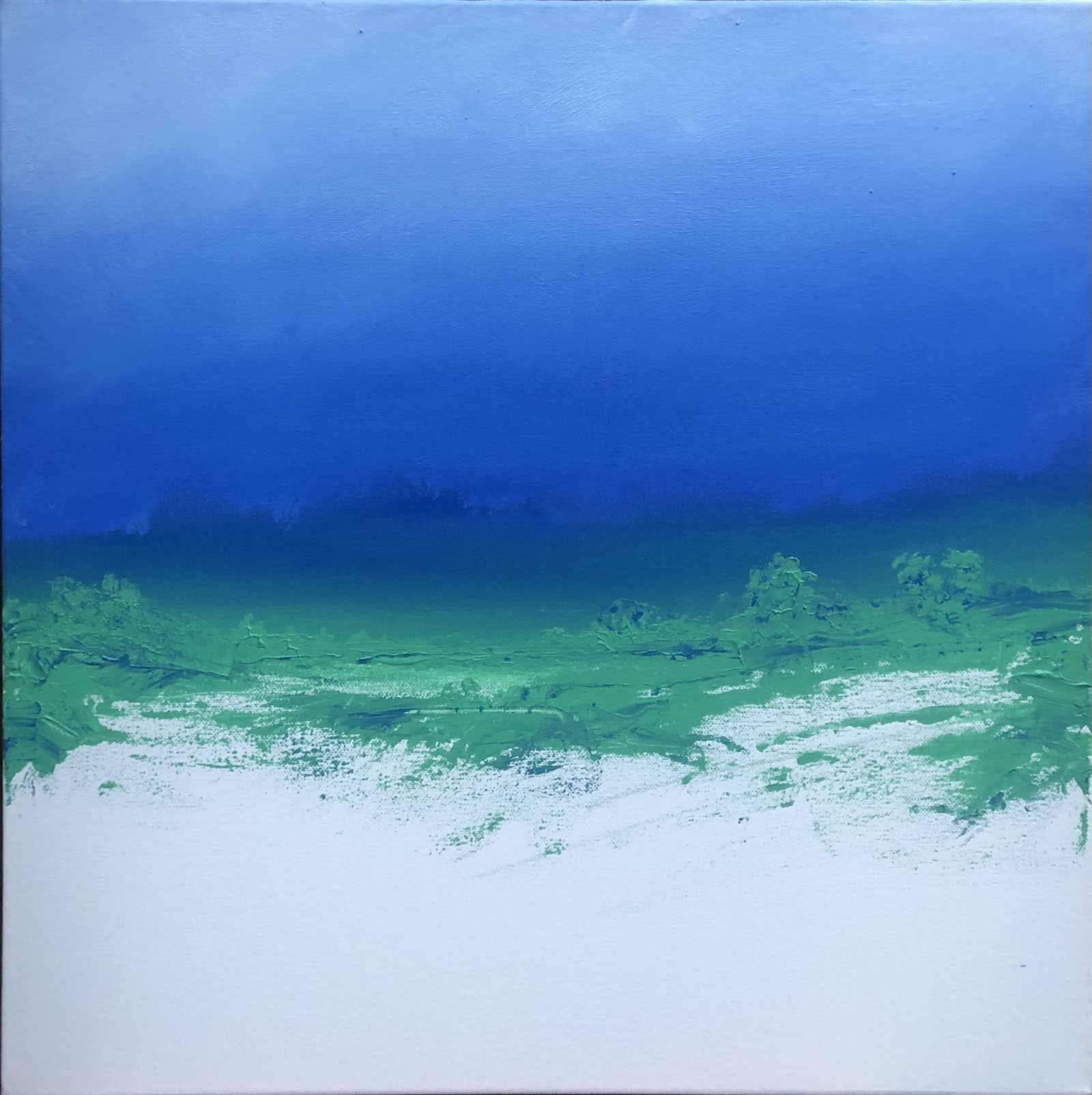
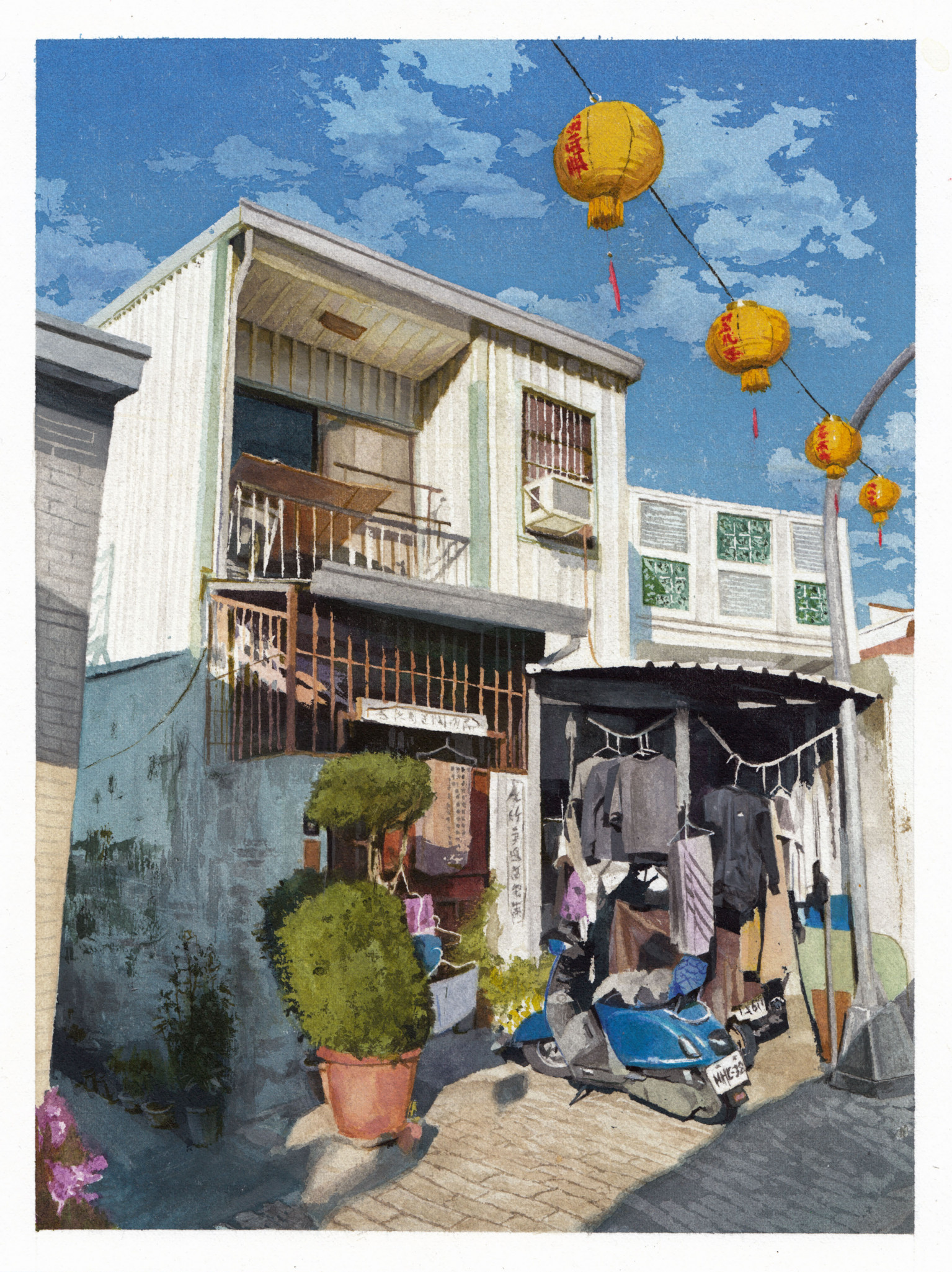
EWA PODLES

1) Walk me through a typical day in the studio for you?
EP: I start at 9am working until 3.30pm. I work in my tiny [3x2 m] home studio. I start from a cup of black coffee which makes me happy. When creating, I usually listen to the Smoot radio as music is very important to me. Sometimes I come back to the studio in the evening when it is quiet. The evening for me is the best time to work.
2) What is something viewers might not know about your work?
EP: You might not know that at first I paint oil paintings on a wooden panel, but then I scan it and I continue the process on the computer.
3) What is the most challenging part of your process as an artist and what is most rewarding?
EP: The most challenging part of my process as an artist is finding a great face and pose. Painting is a long process and sometimes I have to stop it if the portrait is not good enough. The most rewarding thing is when I know that the piece is good and I can finish it. I then feel amazing!
4) Is there any advice you have for artists/creators during this difficult time?
EP: My advice for myself and for artists is that we have to continue our work even in difficult times. In my opinion, creation is the best remedy for all crises.
LOUISE MORGAN

1) Walk me through a typical day in the studio for you?
LM: I never know what I’m going to paint (unless I’m prepping canvases). I always have a large selection of paint in different colours and tones mixed and ready to go. In my studio I have a number of canvases on the go at different stages of development: blank, underpainted and in progress. Most canvases have at least 10 layers of paint allowing for an image to develop so, depending on what catches my eye when I go into the studio then, that’s what I work on or if I’ve run out of prepped canvases... I usually don’t have a plan... It just happens and once I’ve started painting and I’m in the “zone” I paint until consciousness returns and I can look at what I’ve done. When I’m painting I’m lost in it and nothing else registers.
2) What is something viewers might not know about your work?
LM: I paint from my subconscious. I don’t usually plan what I’m going to paint and painting can be quite frenzied at times. I also write poetry as part of my practice. My practice is diverse and I have a number of themes and series going on at the same time. But the overall theme is about memory — of growing up on a farm on the side of a hill with big skies and views that went on for miles. As an artist I am constantly exploring the boundaries of what makes a landscape painting a landscape painting and asking myself the question: What makes a landscape? Sky and Earth or sea? Rivers and fields, mountains and trees? A horizon line? The rule of thirds? Who says it has to be? Questions to be answered Pushing boundaries Experimentation What works and what does not How abstracted can I go.. before the landscape is lost? Blurred and blended above and below? Abstracted shapes and lines? Minimal marks? pared down, almost to zero Lumps of paint daubed here and there, smeared over layers With Pallet knife, fingers and brush Or thin as watercolour; colours bleeding into the next and layered in numerous washes Painted in 50 shades of grey Or bright pigments Straight from the tube A lifelong journey My subconscious telling me where to go Brushes, paint and canvas Changing every day Painting over the mistakes That teach and inform Layers thick on some And others the bare canvas revealed As I work a painting starts to become An image appears Sometimes it happens with just a few strokes And other times it never seems to get there Layer upon layer; it can go on for years And other paintings appear As I clean my brushes On an empty canvas I only know its finished When I no longer feel the need My painting is complete
3) What is the most challenging part of your process as an artist and what is most rewarding?
LM: I think the most challenging thing for me as an artist is knowing whether a painting is “good” or not!
4) Is there any advice you have for artists/creators during this difficult time?
LM: This has been such a difficult year but rewarding as well and I think it’s been a time for reflection Poem: 2020 Vision The year of looking back In hindsight Of Mistakes we made Caught up in busy lives Forgetting the simple things Forgetting how to think Rushing here There To work and back But isolation taught us That life shouldn’t be on a screen Perfected before we post Our world became no larger than our hand No longer caring For each other Until all we had was fear Of not being good enough Pretty enough Rich enough So we scrolled and clicked Feeling inadequate Instead of taking stock Of the little things Those we held dear And being thankful For what we had The simple things Are there to enjoy And sometimes in our hurry We miss the little things That add up to a life of joy Progress created a world of hate We abused our planet Caused animals And insects To die We let our toxic waste Slowly kill our world We let big companies Poison land and sea and sky Until the earth fought back And gave us a virus Stopping us in our tracks The impending destruction Slowed and the skies turned back to blue The air smelled sweeter And the stars came back out So in 2020 we should look back And Think of how we’d change things .... before it’s too late
THOMAS FOWLER

1) Walk me through a typical day in the studio for you?
TF: I don't have a studio, I'm currently in Taiwan on a working holiday visa and have managed to condense everything I need into my rucksack. One of the great things about working with paper is that it's extremely light and portable and I can work anywhere there is a desk. This means a lot of my work gets done in coffee shops. If I have to, I can roll up my paintings into a tube so they can be safely transported. When needed I can just re-stretch them flat again.
2) What is something viewers might not know about your work?
TF: I never really sketch or plan paintings, I get an idea, plan it on photoshop and try the final piece on the 1st go. If it doesn't work I'll just try again. I began experimenting with masking fluid a while ago and have been blown away by its mark-making potential. It allows me to create 'spontaneous' looking effects with an incredible amount of control. I have tried to instill a visible calligraphic element to these paintings, whilst merging it with a 'digital' style.
3) What is the most challenging part of your process as an artist and what is most rewarding?
TF: The most challenging part of being an artist is finding the motivation to continue painting even when you absolutely hate your own work. Sometimes I look through Instagram and see 100 artists who all do what I do but 1000x better and it's easy to think 'what is the point?'. For me painting has become such an integral part of my life that I don't know what I would do with my time if I didn't paint, without this habitual process I would have given up long ago. The most rewarding part of being an artist is when someone buys your work and you support yourself financially doing something you enjoy. Even if it's just a supplementary addition to your full-time job, it's very rewarding knowing someone loved your art so much they paid hard-earned money for it.
4) Is there any advice you have for artists/creators during this difficult time?
TF: My advice for artists during this difficult time is, use this period to your advantage. I was lucky enough to get furlough for 3 months when lockdown first hit, so I just spent the entirety of my time painting whilst getting paid to do nothing, it was great. Then I used the money to escape to Taiwan. You don't get many excuses to just sit in your room and paint, so use this opportunity to do just that. If you do art full time you're already living a life most aren't so just focus on how lucky you are to do something you love and work on converting your entire business online because things aren't going back to normal anytime soon and many industries have permanently adapted due to the COVID pandemic.


